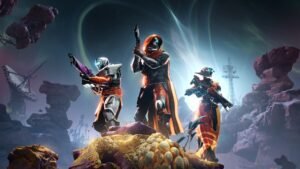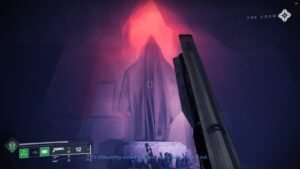Tales of friendship and success often come with staples like hardships and fall outs, and the story of Kojima vs Konami is no different. What started as a powerful duo of the gaming industry over the years started seeing things differently, and as of today, both Konami and Hideo Kojima exist separately, creating their own turn of gaming ideas.
So, what happened? How did the makers of masterpieces like Silent Hill and Metal Gear Solid eventually stop sharing a vision? What led to Kojima’s departure from Konami after 30 long years? Let’s dive deep into the stories that led to it – everything from great ideas to a difference in work ethic.
History of Kojima and Konami (1998 – 2015)

Growing up, Hideo Kojima’s world was shaped by all things unreal. Out of all the universes he enjoyed being a part of, Nintendo took an important place, especially Super Mario Bros. The enthusiastic little plumber motivated Kojima to dedicate his life to creating video games. Eventually, in 1986, he shook hands with Konami.
However, Kojima was initially asked to create games for the MSX, a home PC that was well-liked in Japan. After his first game, Lost World, was scrapped before it had even been fully developed, Kojima took over the development of the action game Metal Gear from a fellow employee.
Metal Gear Solid was first available for the PlayStation in 1998. It easily took over the gaming world at the time, and many critics have hailed Metal Gear Solid as the greatest video game ever due to its excellent storyline and genre-defining stealth gameplay. Metal Gear became the flagship franchise for Konami, and Kojima rose to fame on a global scale.

Ever since, we received 10 further canonical installments of the Metal Gear franchise, which saw an explosion of popularity, all produced by Kojima and Konami. Metal Gear Solid 5: The Phantom Pain, Kojima’s final game for the company, had its public premiere in September and received positive reviews worldwide. Metal Gear Solid 5: Ground Zeroes, a prequel, was also included in the project’s scope and debuted in March 2014.
In addition, a strange title named ‘P.T.’ debuted on the PlayStation Store in the summer of 2014, which was a surprise to the community. Players discovered that P.T. stood for “playable teaser” after navigating the game’s first-person tunnel-esque environment loaded with eerie riddles and jump scares. The game was teased as a Silent Hill remake co-helmed by Kojima. However, nothing much came to light, and we didn’t hear about the game for a long time.
Trouble in paradise (2015)

Konami announced in March 2015 that it would go through a ‘corporate reorganization’. This would shake things up from a studio-based model, where individual developers were in charge of their own projects. The new model would turn the company into a ‘headquarters-controlled system’ that prioritized corporate demand. It also introduced an entirely new executive board the next day. This was a crucial moment when Kojima was unexpectedly absent from either press announcements.
Now that we speculate this, it’s clear that we have hindsight on what was going on. Kojima was demoted from Executive Content Officer during the restructuring, and his studio – Kojima Productions – was abruptly reduced to a minor component of Konami’s larger ownership. This was the initiation of their infamous breakup, and the news became official a few days later.

At this point, Kojima’s name was eliminated from anything Konami was in control of. He was removed from the website for Metal Gear Solid 5 and all associated promotional materials. His Los Angeles, California-based Kojima Productions facility became the Konami Los Angeles facility. Even though Kojima is well-known in the video game business, he and other developers would not be permitted to advertise MGS5.
After this news became official, the community discovered that Kojima was isolated and had to work on a different floor from the rest of his employees during the last six months of MGS5, corresponding with others through a proxy. Yet in some cruel way, those humiliations were only the start.
Cold punishment (2015 – 2016)

Without Kojima at the lead, Konami made it quite apparent that it intended to carry on with the Metal Gear series. The franchise was established and led by Kojima and his sense of style. Without him, Metal Gear wouldn’t feel the same. Yet, Kojima turned a blind eye to this. A post on Konami’s employment website stated that a fresh new Metal Gear game was already in development at the same time that the company was stripping Kojima of his job.
Under the larger perspective, Konami is the owner of Metal Gear and has complete control over it. But to announce a new Metal Gear when the guy who created it and gave it its distinctive voice is being fired? That’s the kind of passive aggressive comment you make about an ex in public.
Hideki Hayakawa, Konami’s president, declared in May 2015 that mobile gaming would be the company’s primary priority, not console games. This could have been a key reason for the massive overhaul, and even while console games would continue to exist, they were no longer the company’s top concern. In reality, several of Konami’s most popular console games had already begun moving to mobile platforms, where they had been rather successful.

Hayakawa also claimed that Konami’s outdated organizational structure hindered the company’s ability to adapt to ‘new advances’, such as the growth of mobile gaming. Whether it was true or not, one thing was obvious: Kojima’s vision simply didn’t align with Konami anymore, and this came to light through harsh and passive treatment from the company.
At this point, it was obvious that Konami mistreated and showed dissonance towards Hideo Kojima. Although Kojima may have been Konami’s most well-known victim, he wasn’t the only one. Konami turned its workplace into a dystopian, stress-fueled environment and started overworking its staff in an effort to increase earnings as it raced to cash in on the mobile gold rush.
Kojima’s newfound and eccentric approach to game-making (2016 and beyond)

In his struggle to actualize his vision, Kojima wasn’t alone. He got back on his feet in a matter of months because of his contacts in the industry (including Hollywood folk), which included pals like Norman Reedus and Geoff Keighley. The day after parting ways with Konami, Kojima announced the establishment of his brand-new Kojima Productions company and an agreement with Sony to publish his games. Death Stranding, his first game as a free man, was showcased at E3 2016.
Death Stranding was a huge game that shifted a lot of opinions. Many gamers felt that the gameplay wasn’t as engaging or fun compared to Hideo’s earlier titles. Others loved the concept and execution, calling it one of the more philosophical games of our generation. Overtime, the game gained positive reviews and sold more than 5 million copies across PlayStation and PC.
Hideo Kojima spilled some intimate details about Death Stranding at the Tribeca Film Festival. He hadn’t said much about the Konami issue up to this point, but the auteur emphasized how depressed the split left him feeling. Feeling stranded with no teams, resources, or projects to count on, his ‘people’ were a guiding light to fuel his undying fire to make new games. Kojima used his contacts from 30 years of game development to emerge from the ashes with a lot of hope, grit, and persistence.

The core tenet of Death Stranding is its emphasis on connections. Despite the fact that it is an open-world action game, Kojima claimed players will all be connected by figurative chains and strands. Kojima also based it on the intriguing beliefs of Japanese author Kobo Abe.
His brand-new development team, Kojima Productions, had its set of issues starting up, but it did not stop the visionary. Kojima created a team out of numerous former Konami employees with the aid of Sony’s finances and his network. The philosophy behind Death Stranding was created from this transformative voyage, and the designer of Metal Gear was back in the game.

Kojima was able to gain support without having to offer many concrete examples to back up his claims. Even before the prototype or blueprint for Kojima’s concept existed, Norman Reedus and Mads Mikkelsen supported it.
When Reedus and Mikkelsen accepted his offers to feature in the game, Death Stranding was just that — a vision and a concept. Eventually, with strong faith and support, Death Stranding was actualised into a solid AAA title that may have created a new genre we might see new games take inspiration from.
What Kojima vs Konami ultimately led to
When we look back at Konami and Kojima parting ways, it’s an honest victory for both of their visions. Ultimately, Konami was indeed right about making (and porting) games for mobile, leaving the pure focus on AAA titles in the dust. Even today, Konami’s reputation is rather nostalgic than something that shines in modern gaming trends. However, it’s Kojima’s vision that gained utmost wisdom and clarity from the breakup.

Death Stranding’s cultural success marked the beginning for Kojima Productions’ innovative future. There’s quite some hype around the sequel and gamers are eager to see a newer benchmark in philosophical commentary and what kind of conversations the game can spark. After all, post-apocalyptic themes have a lot to teach us, but only a few games manage to bring fruitful conclusions to the genre. Death Stranding isn’t just a game that makes the best of this theme; it also gives Hideo’s eccentricity a remarkable tale to tell.
For once, we can all agree that the Konami and Kojima story wasn’t one about enmity – it’s an epic that inspires two great visionaries to do what they are best at.





